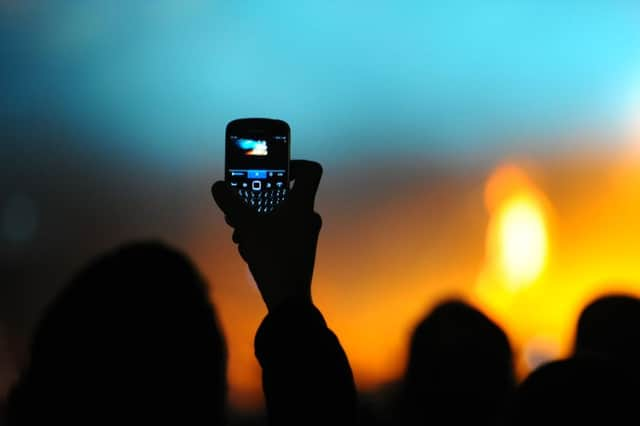Chitra Ramaswamy: Switch on your out-of-office mode


Outside, the shoosh of Scots pines rubbing up against each other, wind roaming big skies, a lone car on a distant road, and the snap of a twig. Inside, the baby is sleeping, the dog is snoring, and the wood burning stove keeps going out. All is peace and solitude… apart from the random beep of our smartphones as e-mails pop through, sounding out like a life support machine in the wilderness. A cruel reminder that a mere hundred miles away our responsibilities, bosses, and pointless subscriptions are waiting for us. That even here, in the middle of nowhere, our inboxes aren’t going to go away.
E-mails are supposed to make life easier but increasingly they are wearing us down. One study found that 92 per cent of employees become stressed when they receive an e-mail in the workplace – their blood pressure, heart rate and cortisol levels all go up. And increasingly work is only one of the places we check our mail. We read e-mails everywhere: on the bus, in bed, in a cabin in the Cairngorms. I pitched the idea for this column to my editor at 21:27 on a Thursday night. And he replied. We check e-mails more than we eat hot meals. Sometimes I breathe less frequently than I check my mail. If I’m feeling really tired, bored, or avoidant, I’ve been known to just sit in front of my inbox, waiting for an e-mail to come and do my head in. All our inboxes seem to do is grow and demand more from us. Like children, without the cuteness.
Advertisement
Hide AdAdvertisement
Hide AdNow it seems the epidemic of staff checking e-mails out of hours is also damaging our productivity. At last week’s annual British Psychological Society’s conference, former government advisor Sir Gary Cooper claimed e-mail is adversely affecting the health not just of employees but their businesses. He referenced figures showing the UK has the second lowest productivity rate of the leading G7 industrial nations. Interestingly the least productive is Japan, a country at the very forefront of technological advances. Cooper, a psychology professor at Lancaster University, has called for limits to be introduced; not just outside work but for e-mails sent and received within the same building to be banned in place of phone calls and meetings.
For those born this century, a meeting is a gathering of people you don’t really know, in a room you never knew existed, to discuss things you don’t really understand. Basically exactly the same as CC-ing, but with tea, fake laughing, and no opportunity to leave the conversation.
Other countries are already engaged in this fight to restore work/life balance. Last year, 250,000 French workers – in the technology sector, no less – were ordered by a legally binding labour agreement to disconnect out of working hours. And as far as I can see, France hasn’t stopped working.
Even if we log off our e-mail it will still be there in the morning. Only bigger, and more overwhelming. My inbox is one of the messiest areas of my life. It’s not an inbox, it’s a place where messages go to die. The best thing about leaving my last job was shutting it down once and for all. God, it felt good to say goodbye. Since then I’ve stopped caring. I no longer attempt to clear my e-mail, archive it, or reply to everyone. I no longer have it set up on my smartphone. Once in a while I create some new folders and halfheartedly move a few e-mails around in a rearranging-deck-chairs-on-the-Titanic sort of way. Mostly I continue to ignore the messages from LinkedIn.
At work, e-mail is by and large a good thing: it’s fast, efficient, and most meetings and calls go on too long anyway. It’s out in the world, where life happens, that e-mail becomes invasive. My son probably associates the beep of e-mail notifications with his parents. He probably thinks that sound comes out of our bodies. The trip I mentioned may have been to mark the 11-year anniversary of my relationship but even on a walk of staggering beauty with my partner, baby, and dog, I found myself staggering about the glen replying to an editor and shaking my fist at the lovely sky whenever my signal disappeared. So that’s it. No more checking my e-mail 20 times an hour at work, at home, and especially on holiday. I might go and refresh my Twitter feed instead…